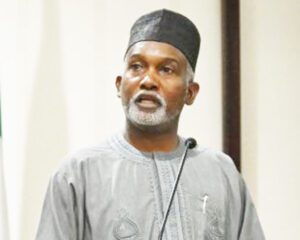
Private sector players urge FG to suspend new electricity tariff
…Says it will affect production negatively
By Omolola Dede Adeyanju
Private Sector players in the Nigerian business space under the umbrella group of the Organised Private Sector (OPSN) have urged the Federal Government (FG) to suspend the new electricity tariff.
The Nigerian Electricity Regulatory Commission (NERC) had recently announced an upward review in the electricity tariff for Band A customers generating public outcry.
In a statement by OPSN comprising top Business Membership Organisations (BMOs) MAN, NACCIMA, NECA, NASSI and NASME representing more than 5 million businesses in Nigeria, the association said has taken due notice of the various reforms initiated by the President Bola Tinubu administration to stabilise the economy, enhance human capital development and increase the tax-to-GDP ratio to 15 percent while enhancing fiscal transparency.
“The OPSN has received numerous complaints from its member-companies on the implications of the recent astronomical increase in electricity tariff by the Nigerian Electricity Regulatory Commission (NERC) for Band A customers without the required and proper consultations with the private sector. This sudden exponential increase in the face of inadequate electricity supply, is inimical to the competitiveness of Nigerian products and businesses and will definitely exacerbate the impact of high cost of production,” the Group argued.
Meanwhile, OPSN explained that the astronomical increase is against the MYTO Order referenced NERC/2023/05, which valued the cost-reflective tariff at N114.8/Kwh (determined using exchange rate of N919.39/$1).
“It also does not reflect the current exchange rate reality that has seen the Naira appreciate by 62.95 percent over the dollar in the last one month.
“A closer look at the impact of increase in electricity tariff to N225/kwh (determined using exchange rate of N1463.31/$1) on the cost profile of a medium sized company using 700kw revealed that the firm will need to pay about N1.4b per annum (700 x 225 x 24 x 365)for electricity.
“In China, a similar medium sized company will pay a little over N24m (700 x 94.14 x 24 x 365). Obviously, the new electricity tariff is outrageously higher, when compared with the going rates in countries with significant manufacturing performance.”
The body further enumerated that In the United states of America (USA), United Kingdom, Germany, France, China, India, South Africa, Ghana and Benin Republic, prevailing electricity cost per kilowatt hour are $0.1545, $ 0.3063, $0.53,$0.0573,$0.076, $0.068, $0.0999, $0.123 and $0.195 respectively.
The group further argued that conversion values of the afore-mentioned electricity cost in Naira are N191.38, N379.41, N656.50, N70.98, N94.14, N84.23, N64.53, N152.36 and N125.95 respectively.
“Clearly, with the new tariff of N225/kwh, Nigeria now ranks third after Germany and the United Kingdom on the list of countries with high electricity cost. What is most worrisome with the Nigerian case is the fact that the electricity to be supplied is not adequate.
“Also, the increase is coming on the heels of macroeconomic instability, infrastructure deficits, as well as other supply side constraints limiting the performance of the productive sector. Truth be told, over 65 percent of private businesses, especially manufacturing concerns and SMIs, may be forced to close down due to the high electricity tariff.
“However, in consideration of the above and from compelling primary data and submissions from member-companies, the OPSN noted that it is constrained to state that the more than 200 percent increase in electricity tariff at this difficult time is inimical to the survival of our businesses and would lead to unprecedented downturn in the productive sector of the economy.
“It will have negative trickle-down effects and certainly impoverish Nigerians. The unwarranted increase will worsen the upward swing in inflation, aggravate the pressure on the disposable income of the average Nigerian and lead to closure of many private businesses. The cumulative effect will be an escalation of the current high level of unemployment and insecurity in the country,” it explained.
The group urged the government to have dialogue around the process and methodology of determining electricity tariff as well as jointly agreeing on the transparent mechanism required for tariff setting.




